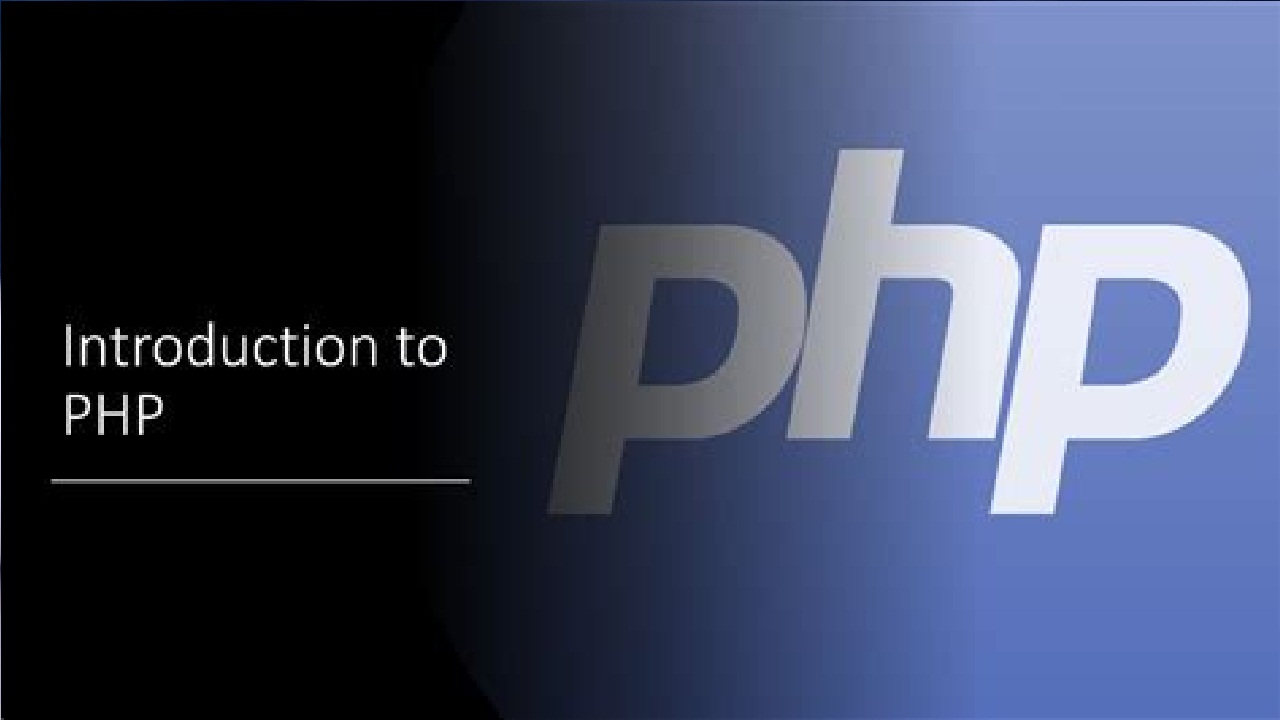
PHP, which stands for Hypertext Preprocessor, is a widely-used open-source scripting language specially designed for web development. With its simplicity and versatility, PHP has become one of the most popular languages for building dynamic websites and web applications. In this article, we will provide you with an in-depth introduction to PHP, highlighting its key features and benefits. Whether you are a beginner or an experienced developer, understanding the fundamentals of PHP will empower you to create powerful and interactive web solutions.
PHP was originally created in 1994 by Rasmus Lerdorf and has since evolved into a robust and feature-rich language. As an interpreted language, PHP does not require compilation and runs directly on the server, generating dynamic HTML content. This feature makes PHP an ideal choice for server-side scripting and database-driven applications.
Simplicity and Flexibility
One of the primary reasons for PHP's popularity is its simplicity. The syntax and structure of PHP code are easy to understand and learn, especially for developers familiar with C or Perl. Additionally, PHP offers tremendous flexibility, allowing developers to write procedural or object-oriented code based on their preference and project requirements.
Extensive Database Support
PHP offers extensive support for various databases, including MySQL, Oracle, PostgreSQL, and more. This enables developers to create dynamic websites with ease by integrating data from databases into web pages. The availability of database-specific extensions and libraries further simplifies database interactions, making PHP a preferred choice for database-driven applications.
Powerful Web Development Capabilities
PHP provides a wide range of built-in functions and libraries for web development. These tools empower developers to handle tasks such as form processing, file uploads, email handling, and more. Additionally, PHP supports integration with external libraries and frameworks, such as Laravel, Symfony, and CodeIgniter, which enhance development efficiency and scalability.
Cross-Platform Compatibility
PHP is a cross-platform language, meaning it can run on various operating systems, including Windows, Linux, macOS, and more. This flexibility enables developers to deploy PHP applications on different server environments without significant modifications, resulting in increased portability and wider accessibility.
When comparing PHP with other programming languages like Python, Java, or Ruby, each language has its unique strengths and use cases. PHP's focus on web development and its large community make it an excellent choice for building dynamic websites efficiently. However, for complex enterprise-level applications or scientific computing, other languages may provide more specific features and performance advantages.
PHP frameworks, such as Laravel, Symfony, and CodeIgniter, offer reusable components and predefined structures to streamline web development. These frameworks follow best practices and design patterns, promoting code organization, maintainability, and scalability. Choosing a PHP framework that aligns with your project's requirements can significantly speed up development and ensure code quality.
As with any web development language, security is a crucial aspect to consider in PHP. To ensure secure PHP applications, developers must adhere to best practices such as input validation, proper handling of user data, protection against SQL injection and cross-site scripting (XSS) attacks, and regular updates to PHP and its dependencies. Staying up to date with security practices and using secure coding techniques is essential for maintaining the integrity of your PHP applications.
PHP has emerged as a powerful and widely-used scripting language for web development, thanks to its simplicity, flexibility, and extensive community support. In summary, PHP offers a robust foundation for web development, empowering developers to create dynamic and feature-rich websites and web applications. By embracing PHP's strengths, exploring frameworks, and prioritizing security, you can unlock the full potential of this versatile language and deliver exceptional web solutions that meet the demands of today's digital landscape.